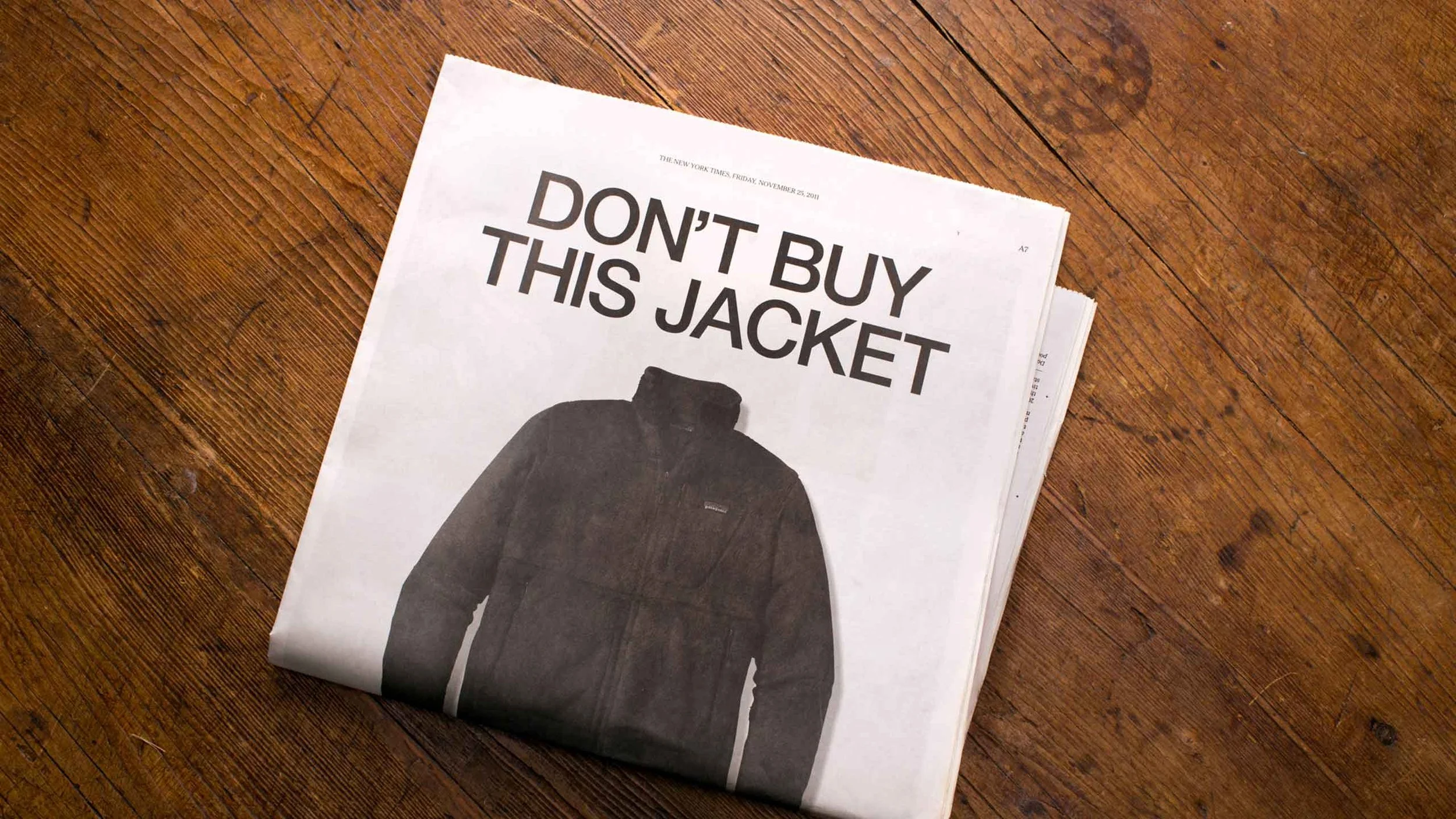What is ‘De-Influencing’ and What Does It Mean for Brand Marketing?
In today’s digital landscape, ‘de-influencing’ has emerged as a counter-movement to a traditionally overindulgent culture, addressing the consumer fatigue associated with constant product pushing and encouraging a more intentional approach to consumption.
Unlike conventional marketing, which often promotes products as must-haves, de-influencing advocates for critical thinking and a shift toward authenticity and transparency in brand messaging. Though this could present itself as a threat to brands, this trend highlights the importance of aligning marketing strategies with consumer values, creating a new standard and expectation, and further recognizing those brands that rise to the occasion.
Image by IKEA
De-Influencing as a Response to Consumer Fatigue
Beyond the demand for greater transparency from marketing campaigns, we see a growing consumer fatigue—a sense of consumer guilt. De-influencing encourages consumers to make more mindful purchases by questioning the need for highly promoted products, especially as audiences grow tired of endless and omnipresent marketing. By emphasizing only what’s needed, brands help reduce waste and support a healthier environment. This trend promotes a sustainable lifestyle by favoring items that last and reducing the impact of fast, throwaway purchases.
Case Study: Patagonia’s “Don’t Buy This Jacket” Campaign
A provocative headline, in the New York Times, on Black Friday? Patagonia made a head-turning statement in November 2011, urging consumers not to buy their product. Patagonia’s bold stance promoted thoughtful consumption over unnecessary accumulation, aligning with de-influencing principles. Though also seen as a possible ‘reverse psychology’ marketing stunt, Patagonia reinforced its commitment to environmental responsibility while fostering a stronger, trust-based relationship with its customers.
Image by Patagonia
Authentic Storytelling VS Product Pushing
In an era where audiences are seeking genuine care, concern and authentic storytelling, it has become essential for brands to cut through the marketing noise. Rather than relying on traditional product-pushing techniques, authentic storytelling allows brands to communicate their values, purpose, and positive impact, building deeper connections with their audiences. This approach shifts the focus from "selling" to "sharing," which resonates with consumers who want brands to be transparent and values-driven.
Case Study: Unilever’s "No Ads Pledge for Younger Audiences"
Unilever’s No Ads Pledge for children and teens exemplifies ethical marketing and social responsibility rather than maximizing sales. By choosing not to target younger audiences, Unilever sends a powerful message about its commitment to the well-being of its consumers, especially vulnerable demographics. This aligns with the core message behind ‘de-influencing’, where responsible consumption is prioritized over profitability.
Image by Unilever (as seen on The Drum)
Encouraging Transparency in Influencer Partnerships
The de-influencing movement promotes honest, balanced reviews and discourages unnecessary purchases, pushing brands to seek transparent, authentic influencer partnerships. This approach builds trust with consumers who prefer brands open to feedback. While influencer marketing remains strong, de-influencing is reshaping how influencers engage with audiences and endorse products, emphasizing credibility over hype.
Case Study: TikTok’s #Deinfluencing Trend
Both influencing and de-influencing aim to guide consumer behavior but take different approaches. Influencers typically encourage purchases by promoting product benefits, while de-influencers focus on honesty and skepticism, often cautioning against overhyped products and recommending practical, affordable alternatives. This shift emphasizes responsible consumption and intentionality over impulsive buying.
Image by Isabella Lanter
As the de-influencing movement grows, it signals an evolution towards more responsible consumer behavior, with brands adapting their marketing strategies to focus on authenticity, transparency, and sustainability. Patagonia’s Don’t Buy This Jacket campaign, Unilever’s commitment to ethical marketing, and the #deinfluencing trend on TikTok all show that consumers are becoming more selective and value-driven in their purchasing decisions. Brands that embrace this shift, prioritizing long-term relationships over short-term profitability, will likely gain trust and loyalty from their audiences. As the social media landscape continues to evolve, the increasing focus on ethicality and sustainability will undoubtedly shape future trends, challenging brands to stay ahead and relevant in a rapidly changing market.





